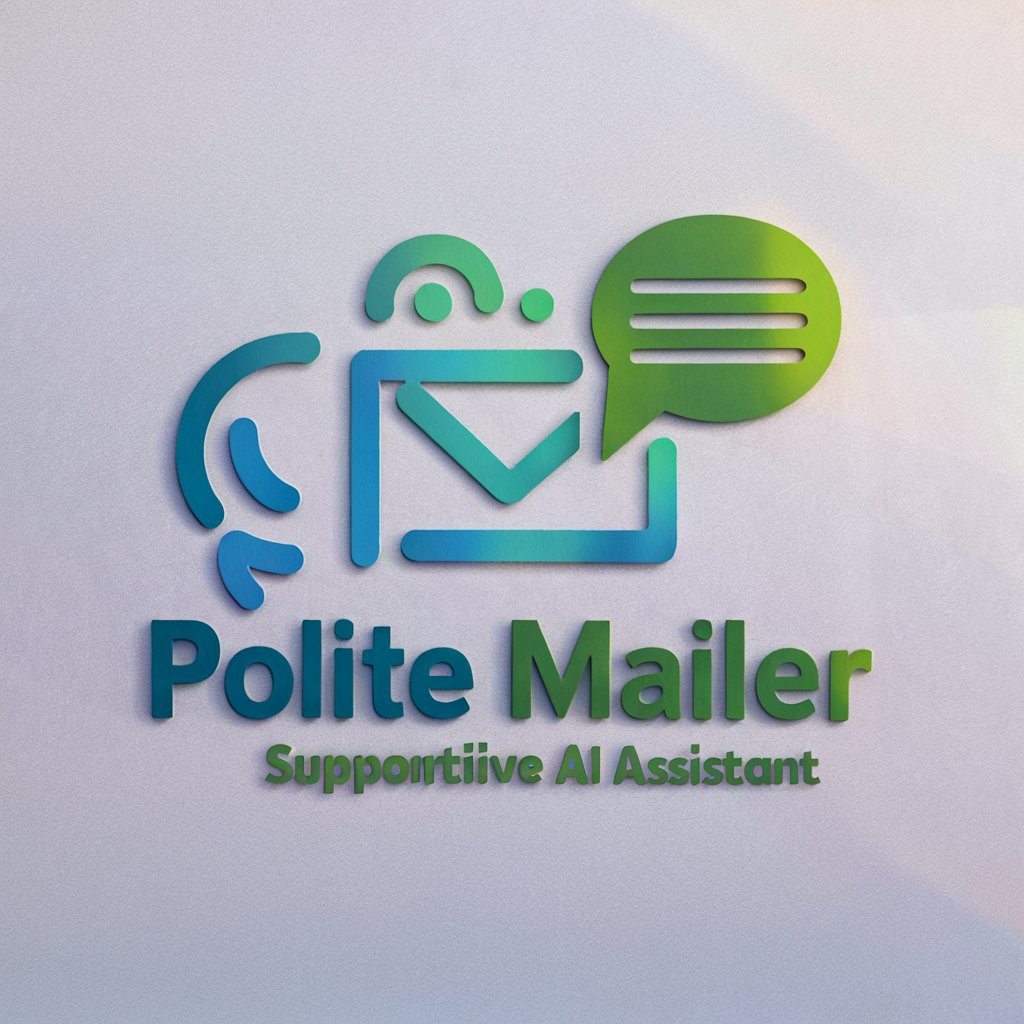Vue Copilot - Vue.js development AI assistant

AI-Powered Vue.js Development Companion
👤 Build a full login screen with password recovery
⭐️ Transform this UI design into Vue.js code
🪲 Find any bug or improvement in my code
💡 Teach me a useful skill or trick in Vue.js
Get Embed Code
Introduction to Vue Copilot
Vue Copilot is an advanced assistant designed specifically for Vue.js developers to provide in-depth support across various development tasks. It serves as a powerful resource for developers at all levels, from beginners to experts, offering assistance with tasks such as code generation, debugging, architectural guidance, and performance optimization. The design purpose of Vue Copilot is to ensure that developers can enhance their productivity by reducing the time spent on mundane tasks, while also improving the quality of their code through adherence to best practices and industry standards. For example, a junior developer working on their first Vue.js project may need help implementing a feature with Vue Router. Vue Copilot would provide both the necessary code snippet and explain how routing works within the framework, allowing the developer to learn while solving their immediate problem. On the other hand, a senior developer might use Vue Copilot to refine their application's state management approach, receiving advice on using Vuex or the new Composition API for optimized performance and scalability. Powered by ChatGPT-4o。

Core Functions of Vue Copilot
Code Generation and Assistance
Example
A developer needs to implement a dynamic form that updates based on user input, and Vue Copilot can generate the required Vue components, including reactive state, form validation, and event handling logic.
Scenario
In real-world applications, such as a job application portal, dynamic forms are common. Vue Copilot assists by automatically creating complex forms that dynamically add fields based on user selections, while ensuring data is properly validated.
Debugging and Error Resolution
Example
A developer encounters an unexpected error with data-binding in a Vue component. Vue Copilot identifies the problem in the `v-model` directive and suggests a fix, while also explaining the root cause of the error.
Scenario
For instance, in an e-commerce app, a developer might face issues binding data between product filters and displayed items. Vue Copilot can diagnose the issue, ensuring the filters work correctly and update the displayed products in real-time.
Performance Optimization
Example
Vue Copilot helps optimize an application’s performance by identifying components that are unnecessarily re-rendering and suggesting the use of Vue’s `computed` properties or `watchers` for better state management.
Scenario
In a stock market dashboard, real-time data updates can cause unnecessary re-renders of certain components, leading to performance degradation. Vue Copilot recommends implementing optimized strategies, such as debouncing or lazy-loading data, to ensure smooth user experience.
Architecture and Project Guidance
Example
A developer is planning a large-scale project and wants to use a modular architecture with Vuex for state management and Vue Router for navigation. Vue Copilot provides a recommended project structure and guidelines for scaling the application.
Scenario
In a social networking platform with many interconnected modules (user profiles, messaging, news feed), Vue Copilot can suggest a component-based architecture to ensure the project remains scalable and maintainable over time.
Best Practices and Code Review
Example
Vue Copilot evaluates the developer’s existing code for potential improvements, such as better use of Vue’s reactive system, cleaner separation of concerns, or improved state management using the Composition API.
Scenario
A developer working on a fintech app might submit a piece of code to Vue Copilot, and the tool can suggest more efficient ways to handle data within the Vuex store, ensuring clean, maintainable, and efficient code for future updates.
Target Users for Vue Copilot
Junior Developers
Junior developers working with Vue.js benefit from Vue Copilot by gaining access to immediate coding assistance, detailed explanations, and best practice recommendations. This allows them to accelerate their learning curve while efficiently handling real-world development challenges.
Mid-Level Developers
Mid-level developers who are familiar with Vue.js but are looking to refine their skills or handle more complex tasks can use Vue Copilot to improve their coding practices, debug complex issues, and explore advanced features like state management, routing, and optimization.
Senior Developers and Architects
Senior developers and software architects benefit from Vue Copilot by receiving guidance on scalable architecture, project structure, and performance optimization strategies. They can also use it to streamline the development process, ensure adherence to best practices, and mentor their team more effectively.
Freelancers and Independent Developers
Freelancers or independent developers working on multiple projects can leverage Vue Copilot to quickly generate code, debug issues, and improve performance across a variety of applications, ensuring high-quality output while reducing development time.
Development Teams
Development teams working on collaborative projects benefit from using Vue Copilot for maintaining consistency across the codebase, ensuring best practices, and receiving architectural guidance to streamline team workflows in Vue.js projects.

How to Use Vue Copilot
1
Visit yeschat.ai for a free trial without login, also no need for ChatGPT Plus.
2
Choose 'Vue Copilot' from the available AI tools. You can access it directly from the homepage or the tools menu.
3
Familiarize yourself with the interface and input options. You can start typing your Vue.js-related queries or ask for help with specific development tasks.
4
Interact with Vue Copilot by asking questions, requesting code snippets, or seeking explanations on Vue.js topics. Make sure to provide detailed queries for more accurate responses.
5
Utilize the suggested code examples and tips provided by Vue Copilot. Experiment with different types of queries to discover the full range of functionality available.
Try other advanced and practical GPTs
Vue JS Expert
AI-powered solutions for Vue.js developers

English Tutor
AI-Powered Personal English Coach

News and Forecasts on Demand
Stay informed, anticipate the future.

On Demand CISO
Empowering Cybersecurity with AI

Demand Draft Wizard
Automate Your Legal Drafts

Data Insight
Unleash Insights with AI-Powered Analysis

자기 확언 제조
Empower Your Mind, Elevate Your Life

기적을 만드는 확언 생성기
Empowering Your Mind, AI-Driven Affirmations

优云康足踝外科机器人
Empowering Foot and Ankle Health with AI

Polite Mailer
Craft Courteous Conversations with AI

ウキヨ・ウキエと異世界転生
Embark on AI-powered fantasy quests.

家庭导师(孩子教育、夫妻关系、尊敬老人、天伦之乐)
AI-powered family harmony enhancer

Vue Copilot: Frequently Asked Questions
What is Vue Copilot?
Vue Copilot is an AI-powered assistant specifically designed for Vue.js developers. It provides comprehensive support, including debugging assistance, code generation, and best practices to enhance development efficiency.
How can Vue Copilot help with Vue.js development?
Vue Copilot offers in-depth guidance for Vue.js development, covering areas such as setting up projects, state management, integrating third-party libraries, and optimizing performance. It provides ready-to-use code snippets and step-by-step instructions.
Is Vue Copilot suitable for beginners?
Yes, Vue Copilot is designed to cater to developers at all levels, from beginners to advanced users. It offers detailed explanations and examples that help newcomers understand Vue.js concepts while providing advanced solutions for experienced developers.
Can Vue Copilot help with code debugging?
Absolutely! Vue Copilot can analyze your code, detect potential issues, and suggest fixes. It offers recommendations for code refactoring, optimizing performance, and resolving common errors in Vue.js applications.
What types of projects is Vue Copilot best suited for?
Vue Copilot is ideal for all Vue.js projects, including web applications, SPAs, eCommerce sites, and dashboards. Its capabilities are especially valuable in scenarios that require robust state management, component-based architecture, and interactive UI development.
